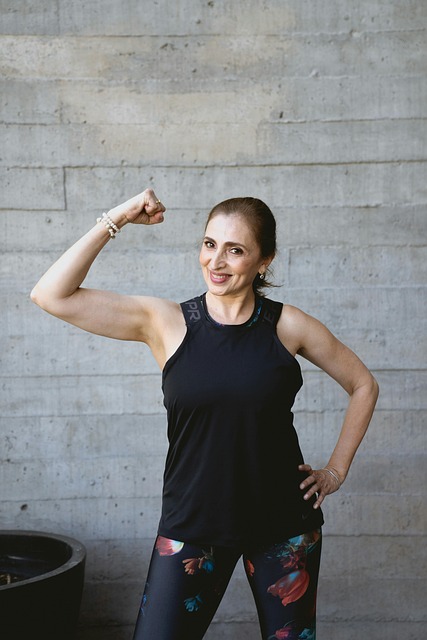Emotional resilience is a key component of holistic wellness, involving effective emotion management, positive mindset cultivation, and hope in adversity. Therapy approaches like cognitive-behavioral therapy (CBT), mindfulness therapy, art therapy, yoga therapy, and meditation enhance emotional healing through integrative wellness practices. These targeted therapies—mindfulness, CBT, art, and yoga—empower individuals to navigate challenges with growth, self-connection, and emotion regulation. Integrative wellness therapy combines art, yoga, and somatic traditions for a holistic approach, addressing mind-body-spirit connections in the healing process. Regular practice of mindfulness and holistic wellness therapies reduces stress, improves emotional regulation, decision-making, and overall well-being.
Emotional resilience is a cornerstone of holistic wellness, enabling individuals to navigate life’s challenges with flexibility and strength. In today’s fast-paced world, targeted therapy approaches are empowering people to build this resilience. This article explores three powerful methods: mindfulness and cognitive-behavioral therapy for mental fortitude, integrative wellness therapy blending art, yoga, and somatic practices, and practical meditation techniques for emotional healing and daily life balance. Discover how these evidence-based strategies contribute to a holistic therapy for holistic wellness.
- Understanding Emotional Resilience and its Importance for Holistic Wellness
- Targeted Therapy Approaches: Unlocking the Power of Mindfulness and Cognitive-Behavioral Techniques
- Integrative Wellness Therapy: A Holistic Blend of Art, Yoga, and Somatic Practices
- Practical Steps to Incorporate Meditation for Emotional Healing and Daily Life Balance
Understanding Emotional Resilience and its Importance for Holistic Wellness

Emotional resilience is the capacity to navigate and bounce back from life’s challenges with adaptability and growth. It involves managing and regulating emotions effectively, fostering a positive mindset, and maintaining hope even in adverse situations. Understanding emotional resilience is crucial for achieving holistic wellness because it enables individuals to cope with stress, anxiety, trauma, and other mental health issues. When integrated into therapy practices, techniques like cognitive-behavioral therapy (CBT), mindfulness therapy, and somatic therapy can enhance emotional healing and resilience.
In an era where mental health awareness is on the rise, therapeutic approaches such as art therapy for healing, yoga therapy, and meditation for holistic wellness have gained prominence. Integrative wellness therapy combines these practices to offer a comprehensive approach to emotional well-being. By addressing the mind, body, and spirit connection, these therapies help individuals cultivate emotional resilience, leading to improved overall health and quality of life.
Targeted Therapy Approaches: Unlocking the Power of Mindfulness and Cognitive-Behavioral Techniques

Targeted Therapy Approaches play a pivotal role in building emotional resilience. Mindfulness therapy, for instance, equips individuals with the skill to stay present and non-judgmentally aware of their thoughts and feelings, fostering a deeper connection with oneself. By cultivating mindfulness, people can better regulate their emotions, reduce stress, and enhance overall well-being.
Cognitive-behavioral therapy (CBT) is another effective approach that focuses on identifying and changing negative thought patterns and behaviors. This type of integrative wellness therapy helps individuals challenge and reframe distorted thinking, thereby improving emotional healing and promoting positive coping strategies. Art therapy for healing and yoga therapy are also integral parts of this holistic wellness approach, offering creative outlets and calming practices to support mental and somatic well-being. Meditation for holistic wellness is a core component, teaching individuals to quiet the mind and cultivate a sense of inner peace and resilience in the face of life’s challenges.
Integrative Wellness Therapy: A Holistic Blend of Art, Yoga, and Somatic Practices

Integrative Wellness Therapy offers a unique and holistic approach to emotional resilience building, combining powerful practices from art, yoga, and somatic traditions. This method recognizes that healing is not solely a cognitive or physical process but involves the intricate connection between mind, body, and spirit. By integrating various therapeutic modalities, clients engage in a comprehensive journey of self-discovery and empowerment.
Art therapy for healing provides a creative outlet for expressing emotions, while yoga therapy and meditation for holistic wellness focus on cultivating present-moment awareness and promoting physical and mental relaxation. Somatic practices, including body-oriented therapy, help individuals develop a deeper sense of bodily awareness, enabling them to release trapped emotions and enhance their overall emotional healing process. This blend of therapeutic techniques allows for a tailored approach, catering to diverse needs and fostering cognitive-behavioral shifts that contribute to long-lasting resilience.
Practical Steps to Incorporate Meditation for Emotional Healing and Daily Life Balance

Incorporating meditation into your daily routine is a powerful step towards building emotional resilience and achieving a balanced life, especially when coupled with holistic wellness therapies like cognitive-behavioral therapy (CBT), integrative wellness therapy, or somatic therapy. These practices foster mindfulness, enabling individuals to develop an awareness of their thoughts and emotions without judgment. CBT, for instance, helps identify and challenge negative thought patterns, while somatic therapy delves into the body’s physical responses to emotions, allowing for a deeper understanding and release of repressed feelings.
Art therapy for healing and yoga therapy are also valuable tools that integrate meditation. Art allows individuals to express themselves creatively and process emotions non-verbally, making it an accessible form of self-care for many. Yoga combines physical postures, breathing exercises, and meditation, promoting mental clarity, improved concentration, and a deeper connection between the mind and body. Regular practice can help reduce stress, enhance emotional regulation, and cultivate a sense of inner peace that translates into better decision-making and overall well-being.
Emotional resilience is a cornerstone of holistic wellness, and targeted therapy approaches like mindfulness, cognitive-behavioral, and somatic practices offer powerful tools to build this strength. Integrative wellness therapy, blending art, yoga, and mindful moments, can profoundly enhance emotional healing and daily life balance. By incorporating practical steps from these therapeutic modalities, individuals can navigate life’s challenges with greater equanimity, fostering a deeper sense of well-being and resilience.
